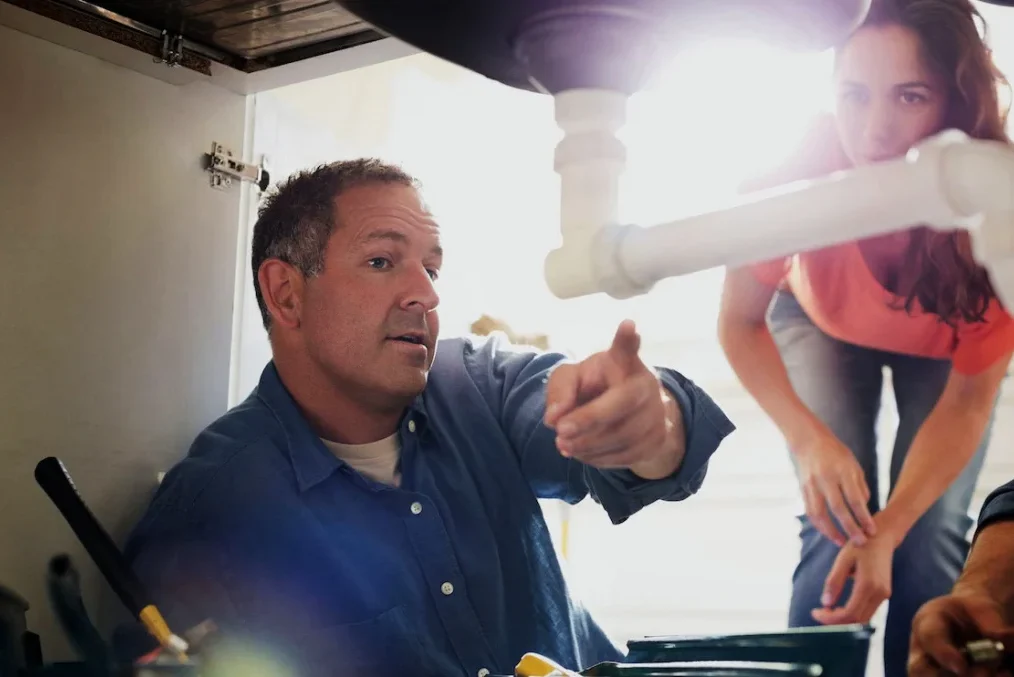plumbing Licensing
new jersey plumbing: How to get certified and licensed in NJ
Plumbing LICENSING
New Jersey plumbing license:
Everything you need to know
The New Jersey plumbing industry is growing. Learn an in-demand skill and get your New Jersey plumbing license. This guide contains information about licensing requirements, apprenticeships, and job resources.
What plumbing work can be done without a license?
You need a New Jersey plumbing license to perform plumbing work in the state.
What are the different types of plumbing licenses in New Jersey
The New Jersey Division of Consumer Affairs only offers one level of license: master plumber license. There are two other levels of plumbers: the apprentice and journeyman. These levels are unlicensed, intended as stages to earn your master plumber license. You must be 21 years old to apply for a master plumber license.
A master plumber can do any kind of plumbing work in New Jersey. Journeyman and apprentice plumbers can assist a master plumber in carrying out a plan, but only the master plumber can design a new system.
A plumber’s pay rate is dependent on his or her experience and location. Plumbers in areas with a high cost of living can charge a higher rate. At the lowest level, an apprentice plumber will make about $17 per hour. The average pay for a journeyman or master plumber in New Jersey is $32.89 per hour. There is a constant demand for plumbers.
How to get a plumbing license in New Jersey
The State Board of Examiners of Master Plumbers handles plumbing licenses through the New Jersey Division of Consumer Affairs. There are two paths to becoming a licensed plumber in New Jersey. The first path is a traditional apprenticeship. You must find a master plumber with an apprenticeship program approved by the Office of Apprenticeship of the United States Department of Labor. Then, you can register as an apprentice plumber. There is a $50 fee to file the application. Your period of apprenticeship lasts at least four years where you will learn the basics of the plumbing trade from your master plumber. At the end of this period, you can register to become a journeyman plumber. After working at the journeyman level for one year, you can apply to become a master plumber.
The academic path is second route to becoming a master plumber. You must enroll in a four-year degree program and graduate with a bachelor’s degree in mechanical, plumbing, or sanitary engineering. There are several schools with strong programs in New Jersey, such as the New Jersey Institute of Technology and the College of New Jersey. Financial aid is available for undergraduate studies. After earning your degree, you can apply to register as a journeyman plumber. The application fee for this registration is $75. After working under a master plumber for a year, you can apply for your master plumber’s license.
If you are at least 21 years old and have completed one of these two paths, you can apply to take the master plumber exam. This exam comes in three parts: trade, business and law, and practical skills. There is a $100 application fee. You also must have a $3000 bond. As part of the process, the board will do a criminal background check. With passing grades on all three parts of the exam, you can receive your New Jersey plumbing license.
Should I join a union?
The plumber unions in New Jersey are actively helping people in the trade. A union can help you secure apprenticeships and journeyman positions. For example, the Plumbers United Association – Local 24 has a five-year apprenticeship program. You will learn how to use tools and work in training facilities. Also, a union can help set up health insurance and other benefits as you continue your path in the trade.
Insurance for plumbers in New Jersey
Plumbers need health and disability insurance. If you work for a major organization, your employer may handle these benefits. If you are an independent plumber, you will need to find your own plan or get one through a union.
Plumbers need liability insurance in case of damage to a client’s property as well as property insurance for their own equipment.
Plumbers also should maintain their physical health. Many plumbing tasks involve heavy lifting and cramped spaces.
How to get my first plumbing apprenticeship
In New Jersey, an apprenticeship program must be approved by the U.S. Department of Labor. Finding a program is like applying for any other job. As an apprentice plumber, you are an employee of the master plumber. Several local unions have structured programs. You can apply for these positions through the union’s website. Whether you are applying for a union program or with an independent master plumber, it is important to wear professional clothing at your interview.
Does my license work in any other states?
No, your New Jersey plumbing license is only valid within the state.
How do I stay up to date with plumbing codes?
New Jersey requires five hours of continuing education for master plumbers in every two years. You can find approved instructors on the state’s website.
What resources are available in the plumbing industry?
You can find general information about plumbing by reading blogs and attending trade shows. Resources are available plumbers who focus on a single specialty in the industry. Joining a union will give you access to the latest industry trends.
How often do I need to renew my plumbing license in New Jersey?
In New Jersey, you must renew your master plumber license every two years. The current fee for renewal is $150.

Other industry licenses

Other industry licenses
LEARN FROM THE PROS
Helpful content for the trades
Explore our collection of helpful articles written by top experts in their field to seasoned pros in the field. Strengthen your field service knowledge and stay current on the latest industry topics and trends.